India's Economic Policies: Inclusive Growth & Social Empowerment - Sitharaman
By Lalit K Jha, Washington Oct 26, 2024 02:50
India's Finance Minister Nirmala Sitharaman highlights the country's economic policies rooted in inclusive growth and social empowerment, aiming for a high-income economy by 2047. She emphasizes India's commitment to global collaboration and sustainable development.
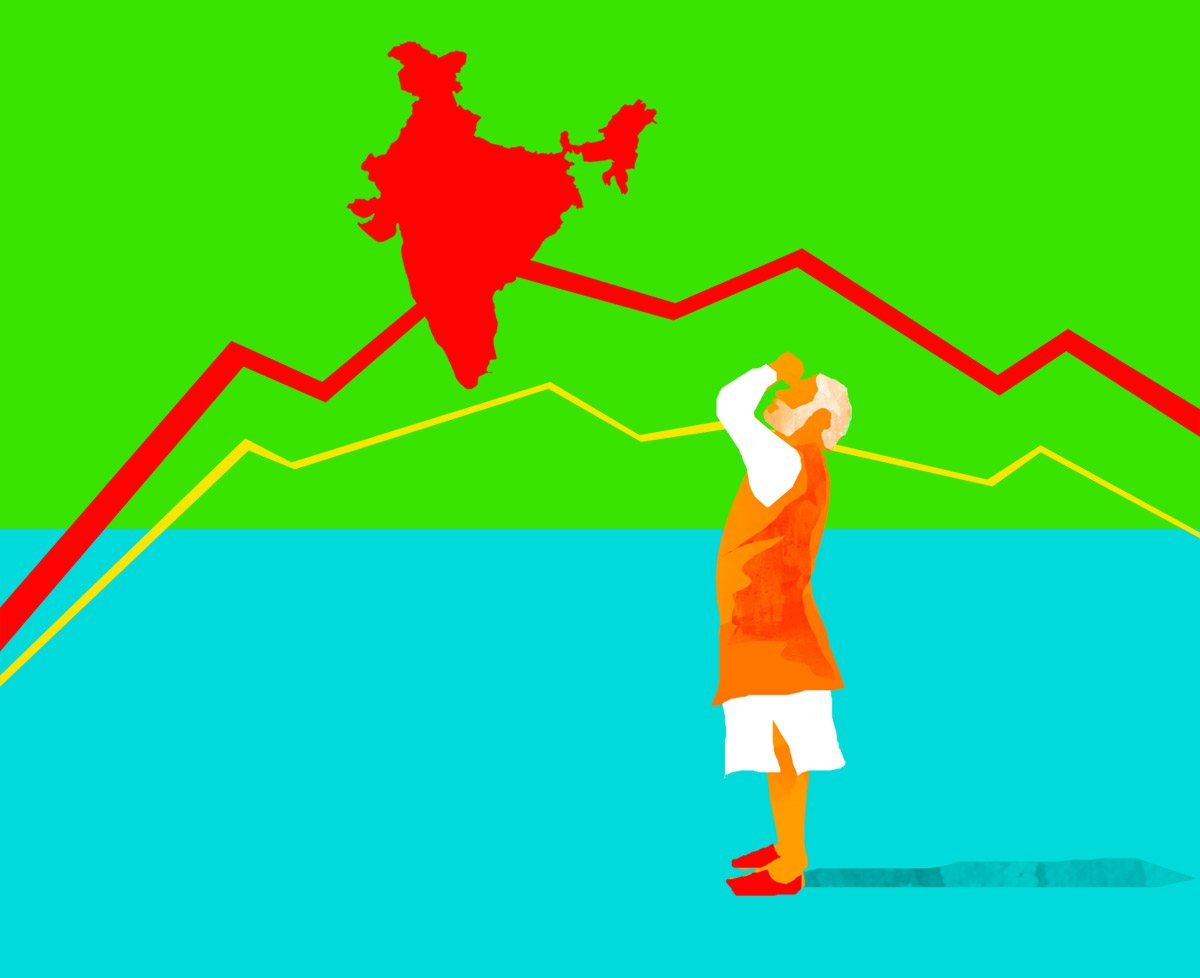
Illustration: Dominic Xavier/Rediff.com
Washington, Oct 26 (PTI) India's economic policies are rooted in inclusive growth and social empowerment, Union Finance Minister Nirmala Sitharaman said Friday, telling the global financial leaders that India is committed to global collaboration even as it pursues its long-term vision of becoming a high-income economy by 2047.
As India pursues its long-term vision of becoming a high-income economy by 2047, it remains committed to global collaboration. The government is working toward USD one trillion in merchandise exports by 2030, leveraging improved logistics, trade reforms, and deeper integration into global value chains, Sitharaman said in her remarks to the Development Committee of the World Bank here.
With synchronised efforts across sectors, India will continue to strengthen its resilience, manage inflation, and maintain policy continuity. By partnering with the World Bank and global stakeholders, India aims to contribute meaningfully to sustainable and inclusive growtha path that benefits both the nation and the global community, she said.
Sitharaman told the Development Committee that India's economic policies are rooted in inclusive growth and social empowerment. Initiatives such as the PM Ujjwala Yojana, Swachh Bharat Mission, and the Jan Dhan-Aadhaar-Mobile trinity have significantly improved access to essential services, reduced financial exclusion, and minimised leakage through targeted Direct Benefit Transfers (DBT), she said.
India, she said, has witnessed sustained improvement in female labour force participation, which increased from 23.3 per cent in 2017-18 to 37 per cent in 2022-23, contributing to both economic productivity and social development. This focus on inclusive development aligns with the government's commitment to leaving no one behind, she added.
Addressing that 50th meeting of the IMFC, separately, at the Annual Meetings, Sitharaman said looking ahead, India's growth story remains intact as its fundamental drivers consumption and investment demand are gaining momentum. Given healthy balance sheets of banks and corporates, supply chain normalisation, business optimism, and robust government capital expenditure, the real GDP growth is expected at 7.2 per cent for 2024-25 and inflation at 4.5 per cent, Sitharaman said.
India, she said, has adhered to the budgeted gross fiscal deficit target of 5.6 per cent of the GDP in 2023-24, now set lower at 4.9 per cent for 2024-25 in line with the medium-term target. Central government revenue expenditure (net of interest payments and subsidies) grew by 9.6 per cent in July-August, after contracting by 1.5 per cent in the previous quarter.
Central government capex increased by 25.8 per cent in July-August 2024 after contracting by 35 per cent in Q1:2024-25. As in 2023-24, focus of the government budget continues to be on infrastructure development and capital expenditure, which are expected to crowd-in private investment, she said.
Private investment continues to gain steam on the back of expansion in non-food bank credit, higher capacity utilisation and rising investment intentions, the finance minister said.
As India pursues its long-term vision of becoming a high-income economy by 2047, it remains committed to global collaboration. The government is working toward USD one trillion in merchandise exports by 2030, leveraging improved logistics, trade reforms, and deeper integration into global value chains, Sitharaman said in her remarks to the Development Committee of the World Bank here.
With synchronised efforts across sectors, India will continue to strengthen its resilience, manage inflation, and maintain policy continuity. By partnering with the World Bank and global stakeholders, India aims to contribute meaningfully to sustainable and inclusive growtha path that benefits both the nation and the global community, she said.
Sitharaman told the Development Committee that India's economic policies are rooted in inclusive growth and social empowerment. Initiatives such as the PM Ujjwala Yojana, Swachh Bharat Mission, and the Jan Dhan-Aadhaar-Mobile trinity have significantly improved access to essential services, reduced financial exclusion, and minimised leakage through targeted Direct Benefit Transfers (DBT), she said.
India, she said, has witnessed sustained improvement in female labour force participation, which increased from 23.3 per cent in 2017-18 to 37 per cent in 2022-23, contributing to both economic productivity and social development. This focus on inclusive development aligns with the government's commitment to leaving no one behind, she added.
Addressing that 50th meeting of the IMFC, separately, at the Annual Meetings, Sitharaman said looking ahead, India's growth story remains intact as its fundamental drivers consumption and investment demand are gaining momentum. Given healthy balance sheets of banks and corporates, supply chain normalisation, business optimism, and robust government capital expenditure, the real GDP growth is expected at 7.2 per cent for 2024-25 and inflation at 4.5 per cent, Sitharaman said.
India, she said, has adhered to the budgeted gross fiscal deficit target of 5.6 per cent of the GDP in 2023-24, now set lower at 4.9 per cent for 2024-25 in line with the medium-term target. Central government revenue expenditure (net of interest payments and subsidies) grew by 9.6 per cent in July-August, after contracting by 1.5 per cent in the previous quarter.
Central government capex increased by 25.8 per cent in July-August 2024 after contracting by 35 per cent in Q1:2024-25. As in 2023-24, focus of the government budget continues to be on infrastructure development and capital expenditure, which are expected to crowd-in private investment, she said.
Private investment continues to gain steam on the back of expansion in non-food bank credit, higher capacity utilisation and rising investment intentions, the finance minister said.
Source: PTI
Read More On:
DISCLAIMER - This article is from a syndicated feed. The original source is responsible for accuracy, views & content ownership. Views expressed may not reflect those of rediff.com India Limited.
You May Like To Read
TODAY'S MOST TRADED COMPANIES
- Company Name
- Price
- Volume
- GTL Infrastructure
- 1.97 ( -0.51)
- 39379788
- Vodafone Idea L
- 8.14 (+ 6.13)
- 29173460
- YES Bank Ltd.
- 20.76 (+ 7.01)
- 22058048
- Srestha Finvest
- 0.63 ( -4.55)
- 21488758
- G G Engineering
- 2.00 ( -6.10)
- 20296494
MORE NEWS

IndiGo Parent InterGlobe Aviation Shares Plunge...
InterGlobe Aviation, the parent of IndiGo, saw its shares plummet over 13% after...

Air India Room-Sharing Policy Deemed 'Illegal'...
The All India Cabin Crew Association (AICCA) has called Air India's new room-sharing...
Deepak Builders Shares Debut Below Issue Price
Deepak Builders & Engineers India Ltd shares listed with a discount of over 2% on the...



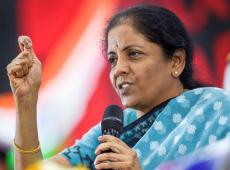
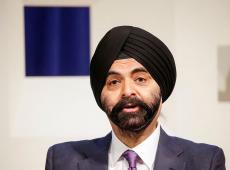
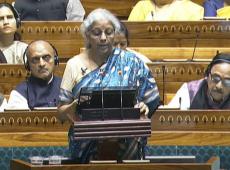


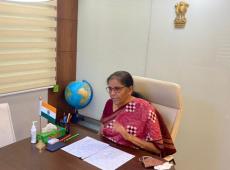

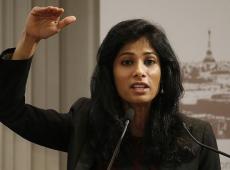

 © 2024 Rediff.com India Limited. All rights reserved.
© 2024 Rediff.com India Limited. All rights reserved.